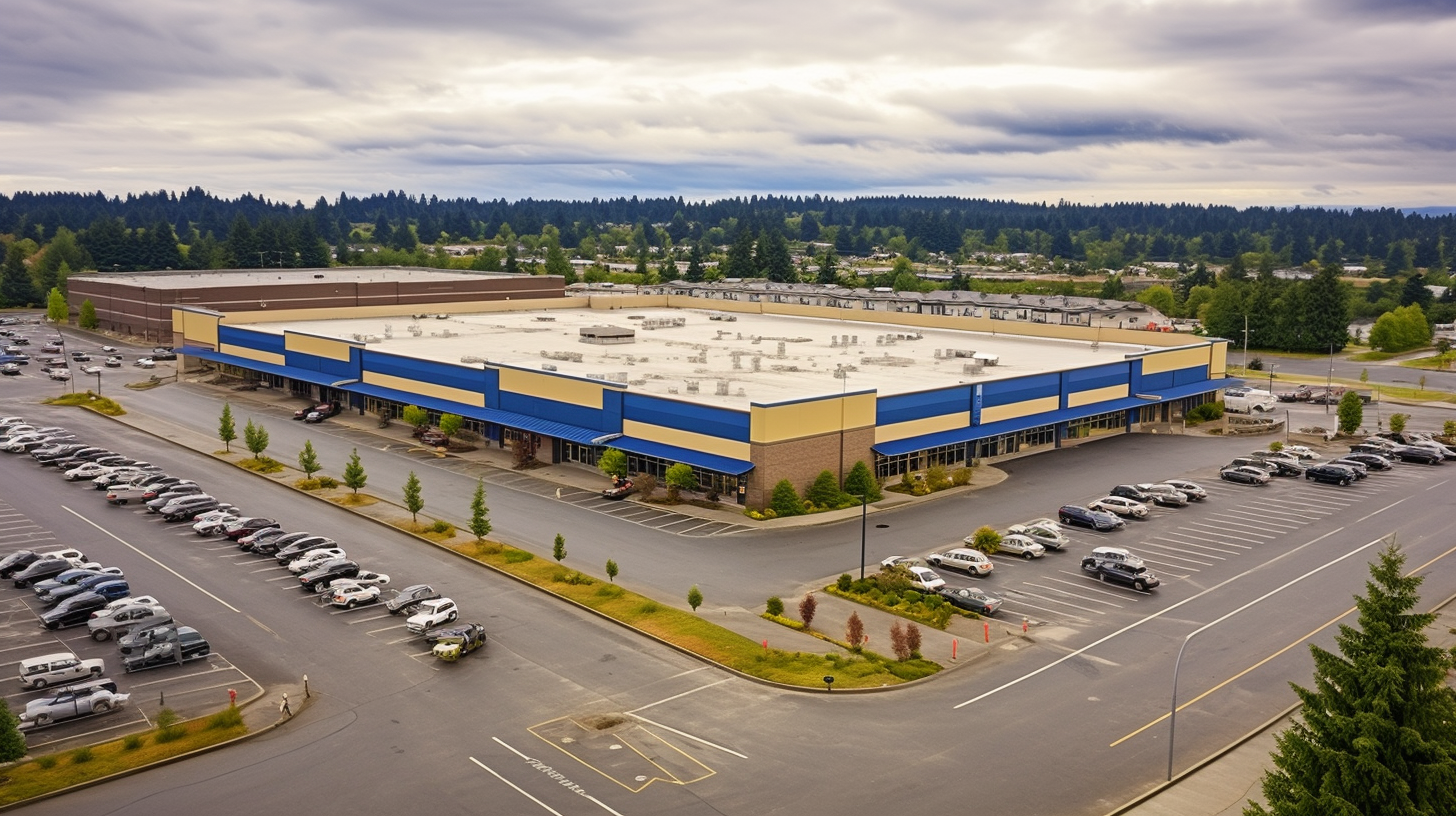Walmart, the colossal retail giant. It’s a name that reverberates through the hearts of small business owners like a menacing thunderclap! Its land use strategy is a masterstroke in corporate manipulation – a strategy that has allowed it to plant its colossal footprint firmly on the American landscape, overshadowing small local retailers with its towering presence.
Walmart’s Land Acquisition Strategy
Walmart is no stranger to controversy. Its aggressive land acquisition strategy is one of the key factors that have contributed to its domination of the retail landscape. Across the country, Walmart has been buying up land like a famished beast, leaving small businesses in the dust.
In Bentonville, Arkansas, where Walmart’s headquarters is located, the company owns more than 15,000 acres of land. That’s a staggering amount of real estate! By comparison, the entire city of San Francisco is only 30,000 acres. Its land acquisition strategy is simple – buy as much land as possible, as quickly as possible. This strategy has allowed Walmart to expand its empire and solidify its dominance over the retail industry.
Impact on Small Retailers
Small businesses often find themselves in the shadow of Walmart’s towering presence, something we call The Walmart Effect. Its aggressive pricing strategies and vast product selection can make it difficult for small businesses to compete. The impact on small retailers is devastating – many find themselves forced to close their doors as they struggle to compete with Walmart’s low prices and wide product range.
It’s not just the competition that’s hurting small retailers. Walmart’s massive land acquisitions also have a devastating impact on local economies. When Walmart moves into a town, it often results in the closure of small businesses and the loss of jobs. This can lead to a significant decrease in local tax revenue, which can have a detrimental impact on local services and infrastructure.
Case Study: A Small Town in Kansas
To truly understand the impact of Walmart’s land use strategy, let’s take a look at a small town in Kansas. In the late 1990s, Walmart purchased a large plot of land in the town and built a Supercenter. The impact on the town’s small retailers was immediate and devastating. Within a year, nearly half of the town’s small retailers had closed their doors.
The town’s economy took a significant hit. Tax revenue decreased, local services were cut, and jobs were lost. This is a common story in towns across America – a story of small businesses being swallowed up by the relentless march of Walmart’s empire.
Walmart’s Land Use Strategy: A Double-Edged Sword
While Walmart’s land use strategy has allowed it to dominate the retail industry, it’s a strategy that comes with significant risks. The company’s aggressive land acquisition has led to a considerable amount of vacant land in its portfolio. This has left the company vulnerable to changes in the real estate market.
Walmart’s Vacant Land: A Liability
Walmart’s strategy of buying up large plots of land has left it with a significant amount of vacant land. This is a major liability for the company. Vacant land doesn’t generate any revenue, and the company has to pay property taxes on the land. In addition, the company has to maintain the land and ensure that it complies with local zoning regulations.
The Impact on Walmart’s Bottom Line
The costs associated with maintaining and managing vacant land can have a significant impact on Walmart’s bottom line. In 2015, the company reported that it had spent more than $1 billion on property taxes and maintenance costs for its vacant land. That’s a significant chunk of change!
Conclusion
Walmart’s land use strategy has allowed it to dominate the retail industry. However, this strategy has had a devastating impact on small local retailers and has left the company with a significant amount of vacant land. As a result, the company is vulnerable to changes in the real estate market and is faced with significant costs associated with maintaining and managing vacant land.
In the end, Walmart’s empire is a testament to the power of big business and the devastating impact it can have on small businesses and local economies. It’s a sobering reminder of the challenges that small businesses face in today’s competitive retail landscape.
Remember, the next time you walk into a Walmart, think about the small businesses that have been impacted by the company’s aggressive land use strategy. Consider supporting your local retailers – they are the backbone of our economy and deserve our support.
Oh, and here’s a random fact for you – did you know that Walmart is the largest private employer in the United States? Yep, with over 1.5 million employees, it’s the largest private employer in the country. Now, that’s some food for thought.




